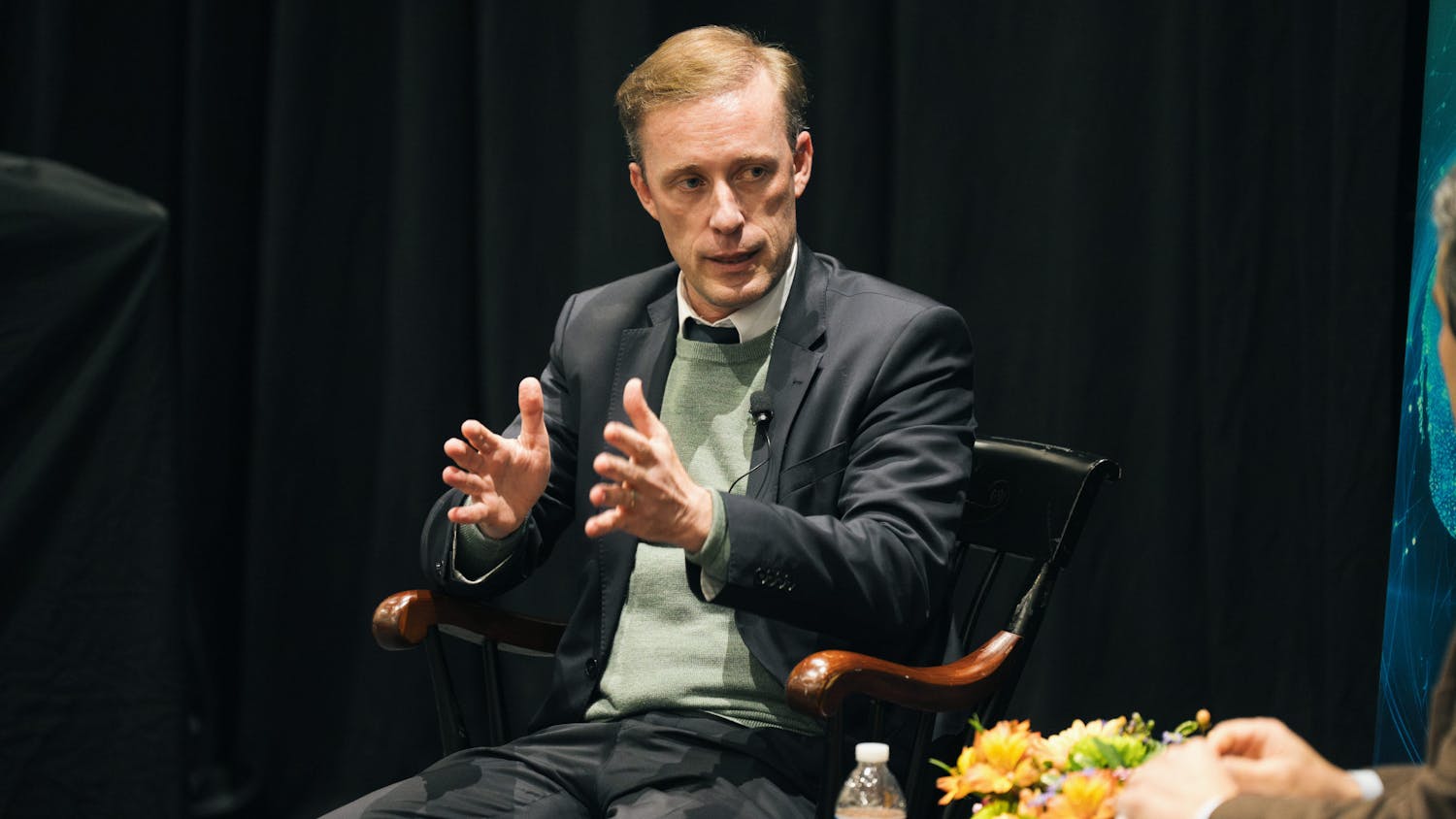Heidi Crebo-Rediker '90, known for her economic expertise and role as an advisor to Sen. John Kerry, D-Mass., on the Foreign Relations Committee, was appointed as the State Department's first chief economist, Secretary of State Hillary Clinton announced last Tuesday. The new position reflects the State Department's effort to institutionalize a coordinated global economic agenda that will guide its diplomatic work, according to foreign policy experts interviewed by The Dartmouth.
While the State Department has previously relied on economic analysis from other sources in government bureaucracy, Crebo-Rediker's presence will place economic issues at the center of the Department's initiatives, according to Edward Alden, a senior fellow at the Council on Foreign Relations, a Washington, D.C.-based think tank.
"The most important thing is that it underscores the Secretary [of State]'s determination to make economics a much more integral part of what the State Department does," Alden said.
Crebo-Rediker was previously the chief of international finance and economics for the Senate Foreign Relations Committee. She was also the founding co-director of the Global Strategic Finance Initiative at the New America Foundation. She started her career as an investment banker working in Europe.
Crebo-Rediker is uniquely qualified for the job, according to Kerry, who noted her roll in bridging global economics and foreign policy during her time on the Foreign Relations Committee.
"The lines between foreign policy and economic policy that maybe existed 20 years ago just don't apply to this new world, and Heidi understood this before most people and certainly is well-suited to helping the Department move an agenda of global economic statecraft," Kerry said in a statement to the press.
Crebo-Rediker's high-level post will send a message to U.S. ambassadors around the world that their embassies play a critical role in boosting American exports and creating jobs, according to Kenneth Yalowitz, director of the Dickey Center for International Understanding and former ambassador to Belarus and Georgia. The guidelines that ambassadors receive from the administration of President Barack Obama, which outline key foreign policy priorities, will likely be revised to reflect the increased focus on economic matters, he said.
"Diplomacy is no longer about sending messages from one capital to the next," Yalowitz said. "It's really about being out there to protect your country's interest."
Yalowitz said the creation of a chief economist position underlines the Department's post-Cold War shift away from military affairs toward maximizing American business competitiveness. While U.S. military strength remains virtually unchallenged, the rising influence of emerging economies namely those of China, India, South Africa and Brazil pushes the need to elevate economic affairs on the State Department's agenda.
The announcement of Crebo-Rediker's position will be greeted favorably by foreign governments that stand to benefit from strengthened trade ties with the U.S., according to Alden. It may, however, cause some tension with China, given the two countries' contention over significant trade-related issues.
Taken together with the 2008 Quadrennial Diplomacy and Defense Review which added international development in developing countries as a third pillar of the State Department's work Crebo-Rediker's appointment illustrates the Obama administration's extensive reorganization strategy for the Department, according to Alden. These two initiatives demonstrate that the State Department plays a more central role in the Obama administration than it did during prior presidencies, he said.
As an advisor to Kerry, Crebo-Rediker focused on U.S. infrastructure issues, Alden said. In particular, she worked on a proposal to establish an infrastructure bank a financial institution partially funded by the government to develop public-private partnerships for investment in domestic infrastructure. The initiative has not yet passed Congress.
Crebo-Rediker could not be reached for comment by press time.



